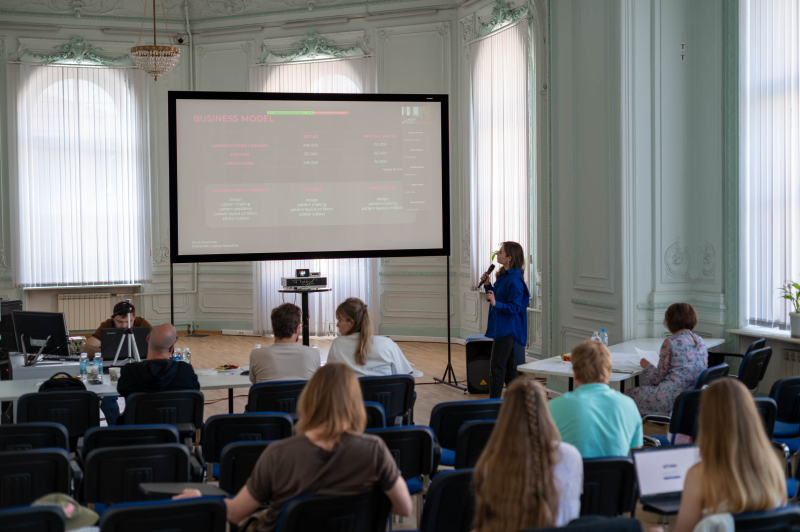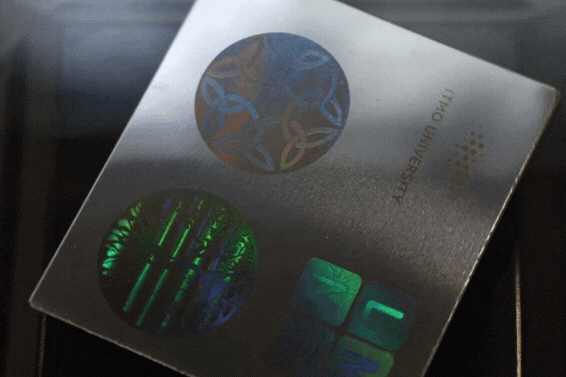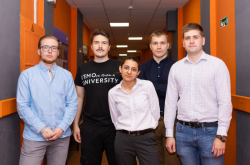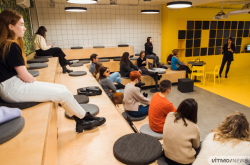Smart home environment controlled with muscle movement
For many years, Evgeny Nekrasov, a graduate from the Faculty of Software Engineering and Computer Systems, has been developing solutions for people with disabilities. As a Bachelor’s student at Far-Eastern Federal University (FEFU), he started working with myoelectric prosthetics that are activated by electric potentials produced during muscle movement. Evgeny uses the same principle in his new VR device now in development – in the future, it will help produce prosthetics without microcontrollers.
The graduate’s most ambitious project is a smart home system, the components of which can be controlled with myoelectic signals in VR. By design, the project will make the lives of its users not only more convenient but also safer: special sensors will monitor the users’ well-being and alert their relatives or medical services were anything to go wrong. For instance, the sensors will register a fall or a long period of inactivity.
“When I was still at school, I decided that I wouldn’t succumb to my disabilities (Evgeny lost his vision and his right hand in an accident – Ed.) – instead, I would conquer technologies. My computer science teacher taught me to use a screen reader, which is how I learned ten programming languages on my own and at FEFU and ITMO. Right now, I work in the fields of DevOps/SRE engineering, big data, AI, VR, and web interfaces for people with visual impairments,” shared Evgeny Nekrasov.
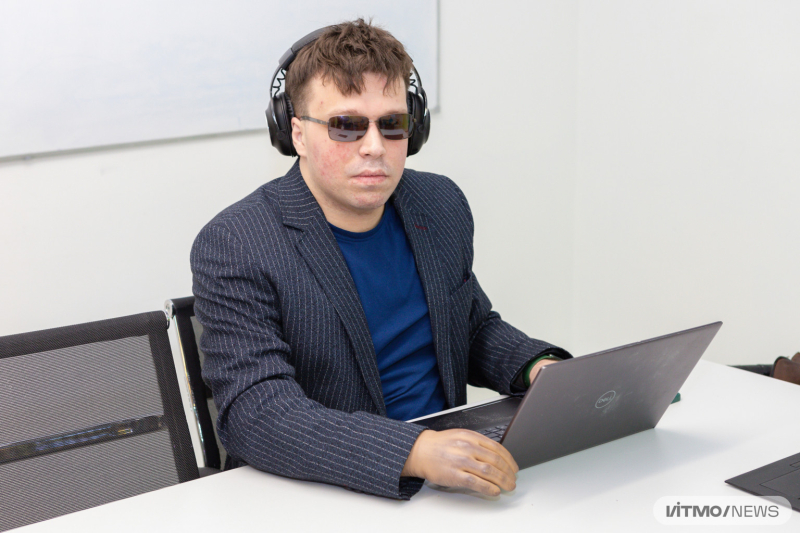
Evgeny Nekrasov. Photo by Dmitry Grigoryev / ITMO.NEWS
Read also:
Russia’s First Master’s in Programming for the Visually Impaired Launches at ITMO
Currently, this project is an MVP, with separate components already assembled and tested. However, Evgeny admits that the technology is complex and expensive. At this time, the team is negotiating with developers to implement smart home elements into rooms during construction.
Biodegradable hydrogel for plants
Lunarium Agro is an all-in-one product made from hydrogel and mineral fertilizers, tailored to dry and highly alkaline soils. The electrolyte-based gel does not only keep the soil hydrated, but also improves its pH balance. Electrolytes solve nutrients in water, allowing them to release slowly – thus making the fertilizer more efficient. At the same time, by retaining water the product prevents roots from growing deep into the ground, which is a useless waste of a plant’s energy.
According to Polina Komarova, the startup’s founder and a graduate of ITMO’s Faculty of Technological Management and Innovations, the product’s target markets are international, in particular, Kazakhstan, the Middle East, and African countries. However, there are dry regions in Russia, too, namely, 18% of all land fit for agriculture – that’s why the team is negotiating with local producers as well. Moreover, the product has already caught the interest of investors: the team participated in ITMO Accelerator and presented their project at the annual Demo Day.
Read also:
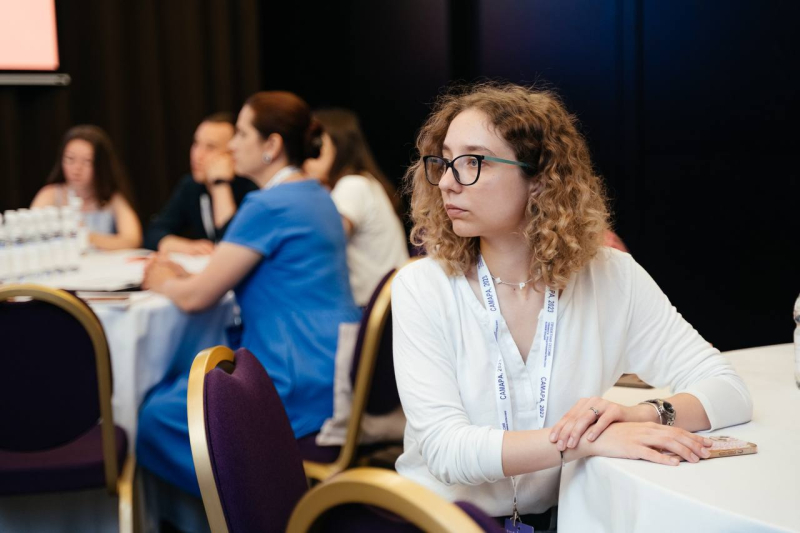
Polina Komarova. Photo courtesy of the subject
Digital platform for agricultural diagnostics
Another agriculture-related project defended at ITMO is Aerospace-Agro, founded four years ago to analyze fields using satellite images. Over these years, the team has collaborated with nine agricultural companies from several Russian regions and in 2021 the project earned 12 million rubles, as well as a grant from the Foundation for Assistance to Small Innovative Enterprises. Elena Konstantinova, the project’s founder, was featured in this year’s Forbes 30 Under 30 in the category Science and Technology.
At the core of the project is an AI-based solution that processes satellite images to determine soil depletion, infection, freeze, or other damage. The algorithm produces a mathematical model to predict soil productivity with regard to its chemical composition and average rainfall. Currently, the team is developing a digital platform that will allow agriculture specialists to evaluate soils in real-time; the app will display daily information on soil temperature and moisture, as well as weather analytics.
Read also:
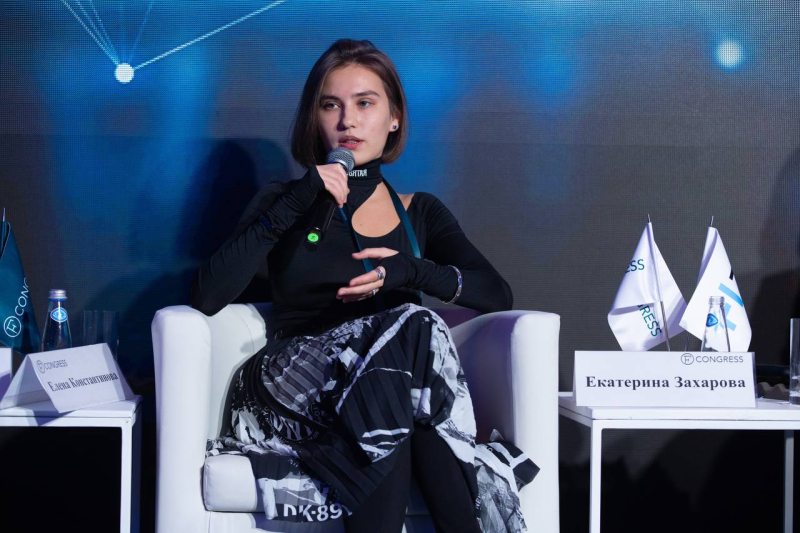
Elena Konstantinova. Photo courtesy of the subject
Financial education for kids
FinPlay is a financial literacy course for school students meant to equip them with fundamental skills for adult life. As explained by Vera Viktorova, a co-founder of the startup and graduate of the Faculty of Technological Management and Innovations, most people have no idea how to manage their money: they don't know how to estimate risks, account for inflation, or build a cash cushion.
Although the project is primarily socially-oriented, it also demonstrates a commercial potential. The team has already delivered several paid intensive classes with private children’s camps in St. Petersburg and the Leningrad Oblast. The startup was also awarded a grant from the Federal Agency for Youth Affairs (Rosmolodyozh).
“We believe that financial education is crucial and teaching it at a younger age helps kids build a healthy relationship with money. Children learn to manage their own finances, thus beginning to build a better financial life for themselves. For now, it may still be their pocket money but such classes will help them be efficient with their financial strategy as adults, too,” commented Vera Viktorova.
Though currently working on a paid app for grownups, the team stresses that free teaching remains an integral part of their mission.
Animated holograms
Evgeny Prokofiev, a graduate of ITMO’s Institute of Laser Technologies, has come up with a novel technology for printing holographic trademarks on steel which will protect various products, such as auto parts, from counterfeiters. While common practices offer conventional film stickers, the novel method makes it possible to apply an image directly onto a surface, so far a steel one, with a laser beam, which etches periodic structures, resembling the desired image, into the surface. The technique can be used to create animated images, as well.
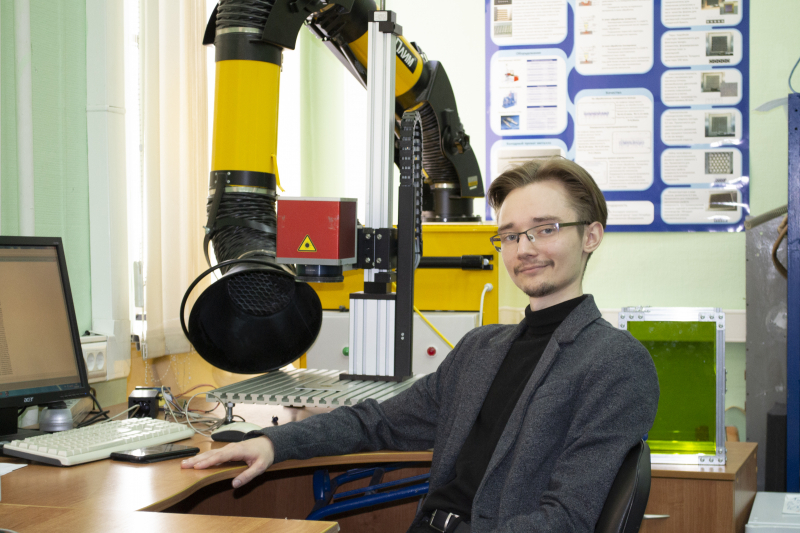
Evgeny Prokofiev. Photo courtesy of the subject
As noted by the developer, such prints not only are cost-efficient but can also be used for individual goods. Until now, holographic trademarking was out of reach for small production as generating 3D holograms is an intensive, time-consuming process that allows for no mistakes.
“Our technology is superior in various respects: from the idea and ease of use to its speed. It is also more affordable and requires fewer materials and equipment — only a laser system,” explained Evgeny Prokofiev.
The team has the prototype and tried-and-tested technology. They are currently negotiating with several domestic organizations, including Goznak and Laser Center, and are testing other materials aiming to expand to polymers in the future.
Demonstration of iridescent microstructures that can be produced using the Evgeny’s solution on the laser installation MiniMarker 2. Video courtesy of Evgeny Prokofiev
Prospects
“Students annually show great enthusiasm for Business Project as Thesis, motivating us to take on new heights,” said Daria Stazharova, a manager at ITMO’s Faculty of Technological Management and Innovations. “In the coming academic year, we expect even more projects from our students. ITMO is a treasure trove of innovative ideas and solutions, and our program helps their authors launch their startups and find first investments.”
She also adds that the team has significantly expanded this year, accounting for as many as 150 experts from Google, Revolut, Skolkovo Ventures, Kirov Group Ventures, MTS AI, as well as Ingria Business Incubator and Moscow Agency of Innovations. These are mentors and business trackers who supervise student projects as part of the educational program Advance Your Business Thesis, members and representatives of the university’s examination committee, and expert councils.
The program aims to help students receive not only expert feedback but also find their potential customers and investors while working on their startups, stress the program’s curators.
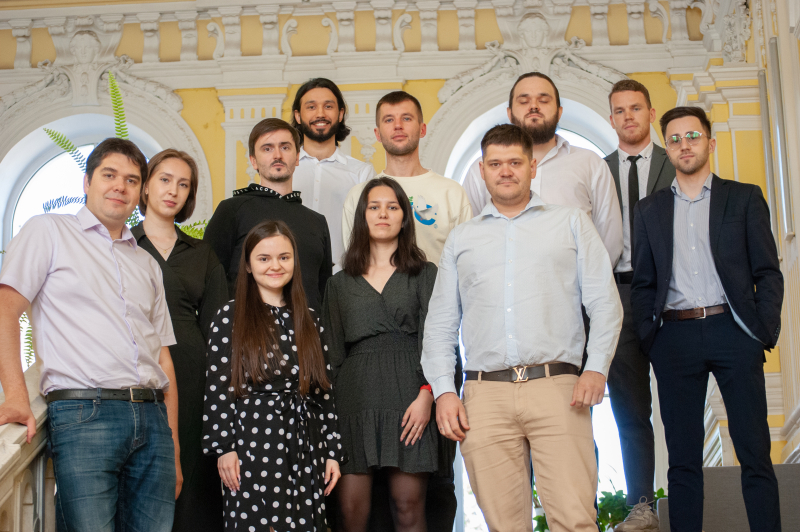
Mentors of the initiative Business Project as Thesis. Photo by Ilya Dzenzelyuk / ITMO’s Mediaportal
In the upcoming academic year, the team will introduce a new startup knowledge base, as well as a service for finding projects and teams. For updates, follow the program’s official channel (in Russian) on Telegram.
